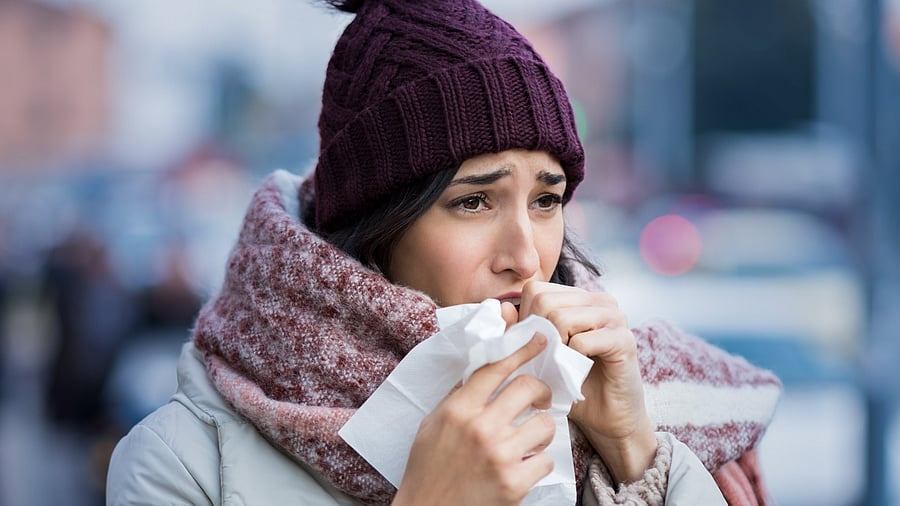
Seasonal and persistent allergic reactions have surged as temperatures swing unpredictably.
Bengaluru: City doctors have reported a significant rise in respiratory and eye-related allergies due to fluctuating weather patterns, sporadic rainfall and pollution.
Seasonal and persistent allergic reactions have surged as temperatures swing unpredictably.
Dr Carolin George, Head of Public Health and Research at Bangalore Baptist Hospital, noted a marginal increase in influenza cases. "Patients with influenza —mostly viral infections like influenza A and B — present varied symptoms such as sore throat, severe muscle pain, or common cold. Delayed attention to these symptoms often leads to complications,” she told DH.
Dr EV Raman, a senior ENT specialist, pointed out the growing transition from seasonal to perennial allergies, driven by lifestyle changes and heightened exposure to indoor and outdoor allergens like house dust mites and pollen.
“Allergies have doubled over the past 30 years, especially in children. Prolonged exposure to allergens worsens symptoms like sneezing, nasal congestion, and irritation, weakening the immune system and increasing susceptibility to infections,” he explained.
He pointed to advancements in managing allergic conditions even as vaccinations have controlled infectious diseases. “Effective treatments include anti-allergic medications to neutralise symptoms, anti-inflammatory drugs to prevent reactions, and immunotherapy to desensitise the body by gradually introducing small doses of allergens,” he added.
Allergic and viral conjunctivitis cases are also rising this season, according to Dr TK Ramesh, a senior ophthalmologist.
“Viruses that cause colds and flu can also trigger conjunctivitis. People with asthma or skin allergies are particularly vulnerable, while frequent eye-rubbing increases the risk of viral conjunctivitis,” he said.
Dr Ramesh stressed on taking preventive measures to curb the spread of conjunctivitis. “Avoid touching shared items like TV remotes, towels, and bed sheets if you have red or sore eyes. Maintaining these precautions for about a week can prevent infections from spreading within households,” he advised.